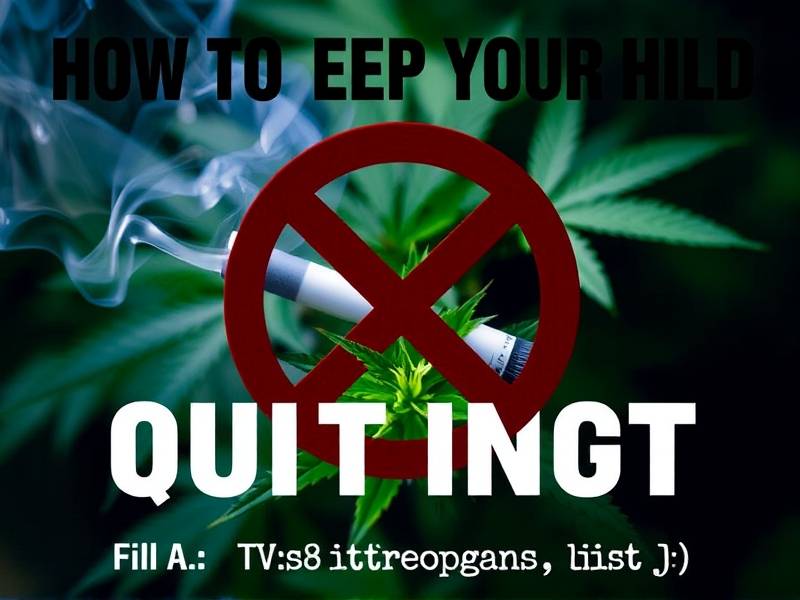How to Help Your Child Quit Smoking Pot: Effective Strategies and Tips
How to Help Your Child Quit Smoking Pot: Effective Strategies and Tips
Introduction: The use of marijuana among teenagers has been a growing concern for parents. As a parent, it's natural to worry about your child's health and well-being when they experiment with smoking pot. If you're looking for ways to help your child quit smoking marijuana, you've come to the right place. In this article, we'll discuss effective strategies and tips to support your child in their journey towards a smoke-free life.
Understanding the Issue: Before delving into the strategies, it's crucial to understand why your child might be smoking marijuana. Teenagers often turn to drugs due to various factors such as curiosity, peer pressure, or as a coping mechanism for stress or anxiety. By understanding the underlying reasons, you can address them more effectively.

- Open Communication: Establishing open and honest communication with your child is the foundation of any successful intervention. Create a safe and non-judgmental environment where they feel comfortable sharing their thoughts and feelings about smoking pot.
a) Listen actively: Show genuine interest in what they have to say without immediately jumping into lectures or arguments. b) Validate their feelings: Acknowledge their emotions without condoning their behavior. c) Share concerns: Express your concerns about their health and well-being in a non-confrontational manner.
- Educate About the Risks: Educating your child about the potential risks associated with smoking marijuana is crucial in helping them make informed decisions. Provide them with accurate information about short-term and long-term effects on physical, mental, and social well-being.
a) Discuss addiction: Explain how regular use can lead to addiction, making it harder for them to quit. b) Highlight mental health risks: Inform them about potential mental health issues like anxiety, depression, and paranoia. c) Emphasize legal consequences: Discuss the legal implications of possessing or using marijuana under age.

- Seek Professional Help: If your child is struggling with marijuana addiction, seeking professional help is essential. Consider consulting with a therapist specializing in addiction or substance abuse treatment.
a) Therapy options: Explore various therapy options such as individual counseling or group therapy. b) Support groups: Encourage joining support groups for teenagers struggling with substance abuse. c) Family therapy: Consider family therapy sessions to address underlying issues within the family unit.
- Set Clear Expectations: Establish clear boundaries regarding drug use within your household. Communicate these expectations clearly and consistently while remaining supportive of your child's journey towards quitting.
a) Consequences of continued use: Make sure they understand the consequences if they continue using marijuana. b) Support during tough times: Offer support during challenging moments while holding them accountable for their actions. c) Celebrate milestones: Recognize and celebrate progress made towards quitting smoking pot.
- Encourage Alternative Activities: Encourage your child to engage in healthy activities that occupy their time and provide fulfillment other than smoking pot.
a) Physical exercise: Suggest joining sports teams or fitness classes. b) Creative pursuits: Encourage hobbies like painting, writing, or playing an instrument. c) Volunteering opportunities: Introduce them to volunteering opportunities that align with their interests.
Conclusion: Helping your child quit smoking pot requires patience, understanding, and consistent support. By establishing open communication, educating about the risks, seeking professional help if needed, setting clear expectations, and encouraging alternative activities, you can empower your child on their path towards a smoke-free life. Remember that change takes time; be patient and supportive throughout their journey.
